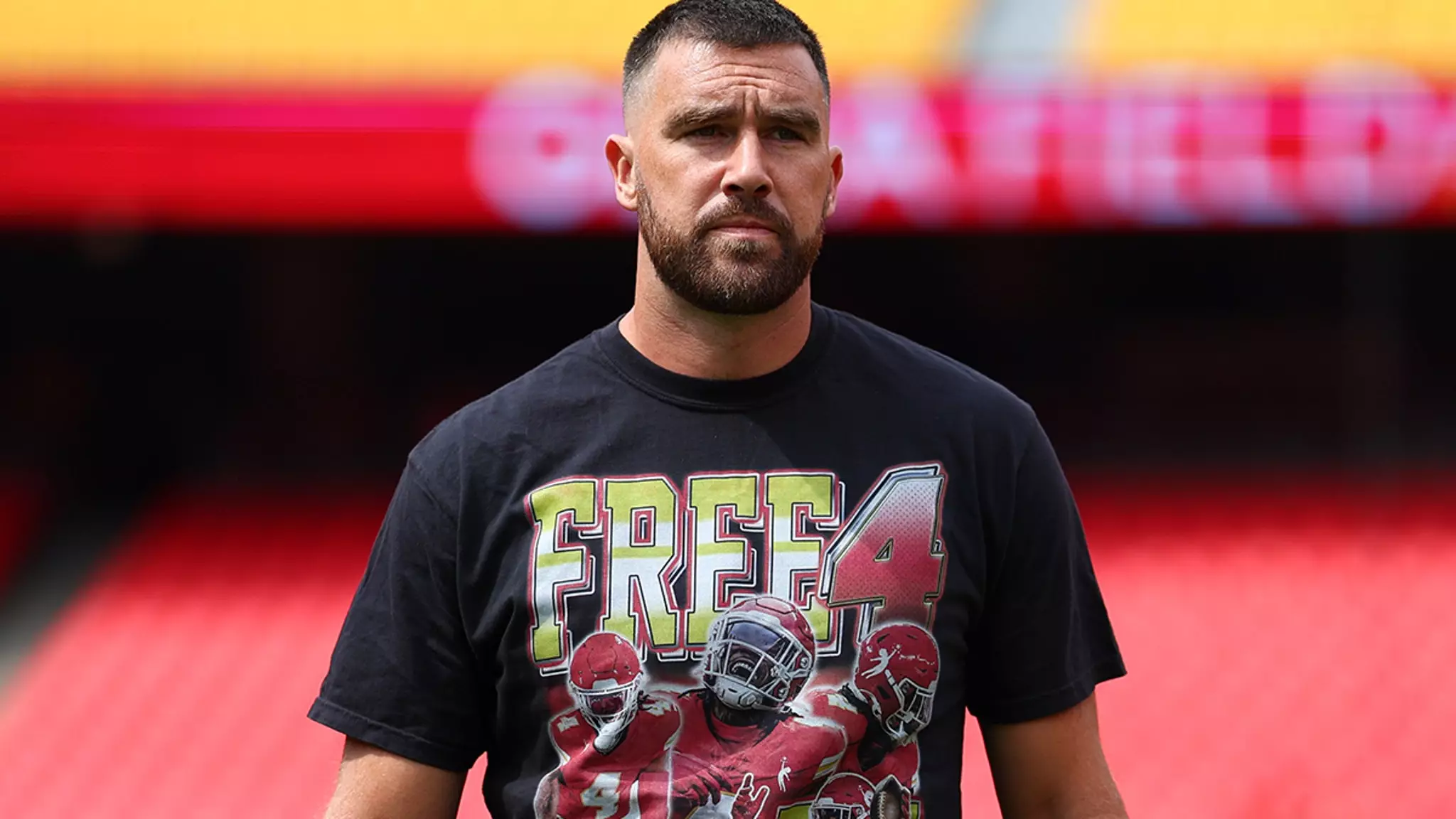In the realm of professional sports, athletes wield a unique influence that extends beyond their physical performances and into the social and moral fabric of society. Their choices—what they wear, say, or endorse—often resonate far beyond the stadiums. Recently, Travis Kelce and his teammate Tyquan Thornton’s decision to don T-shirts referencing Rashee Rice’s suspension has sparked a heated debate about the symbolism athletes project and the responsibility that comes with their platform. While some see these gestures as expressions of support for teammates, others interpret them as problematic and misguided, revealing the complex interplay between personal loyalty, social activism, and accountability.
When athletes participate in symbolic acts such as wearing T-shirts with provocative slogans, they engage in a form of social commentary. It’s a calculated act that can inspire, provoke thought, or alienate, depending on the context and the message. Kelce, a high-profile figure, choosing to wear a shirt endorsing Rashee Rice during a game illustrates how sport has become a stage for social messaging—whether intentionally or inadvertently. The intentions behind such gestures are often rooted in camaraderie and support, but they also carry the potential to romanticize or minimize serious legal and moral issues.
The Risks of Glib Symbolism and the Need for Authentic Accountability
This recent display of support, however, is marred by accusations that it trivializes the gravity of Rice’s misconduct. Rashee Rice’s history—marked by a high-speed crash, fleeing the scene, and multiple felony charges—paints a picture of reckless indifference and a blatant disregard for societal laws and the well-being of others. When Kelce and Thornton wear shirts that seemingly champion Rice, critics argue that it amounts to endorsing a culture where accountability is sidestepped and remorse is replaced by defiance.
The outrage voiced by lawyers like Marc Lenahan underscores an essential point: symbolic gestures devoid of meaningful actions can be ethically hollow. Claiming loyalty or camaraderie is one thing, but failing to acknowledge the harm caused or take steps to rectify it crosses a moral line. Lenahan’s pointed critique—that Kelce and Thornton should have instead used their platform to support victims by assisting with restitution—illuminates the deeper responsibility athletes have. Wearing a T-shirt can make headline news, but real impact requires more than superficial support; it demands concrete actions that align with messages of justice and accountability.
The Broader Implications of Athletes’ Public Acts
This controversy prompts an important reflection on what it means for athletes to serve as role models. Their influence extends into a collective consciousness shaped by symbols, narratives, and shared values. When Kelce and Thornton choose to support a teammate embroiled in serious legal issues, their actions inadvertently become part of a larger conversation about morality in sports and society.
Supporters often argue that athletes are entitled to loyalty and personal expression, emphasizing their right to stand by their friends and teammates. Critics, however, contend that such gestures are risky—potentially glamorizing reckless behavior and undermining the importance of laws and moral standards. The symbolic act of wearing a T-shirt referencing Rashee Rice’s suspension might seem harmless to some, but it can send conflicting messages, especially to impressionable fans or young athletes who look up to these figures.
Ultimately, the question is not just whether Kelce and Thornton support Rice, but whether their gestures genuinely advocate for positive change or merely serve as shallow tokens of solidarity. True leadership in sports requires acknowledgment of one’s influence and a commitment to upholding societal values. Sometimes, silence or actions aligned with justice speak louder than any slogan or shirt.
Challenging Athletes to Elevate Their Social Impact
Beyond this specific incident, the discourse surrounding Kelce and Thornton’s T-shirts underscores a broader societal challenge: encouraging athletes to use their notoriety responsibly. The power of sport lies in its ability to unify, inspire, and promote positive change. When athletes choose symbolism over substance, they risk diminishing their role to that of entertainers rather than societal catalysts.
In the end, the conversation must shift from superficial gestures to meaningful activism. If athletes want to genuinely contribute to a just society, their actions must reflect a commitment to justice, compassion, and accountability. Wearing a supportive T-shirt is a start, but true influence is demonstrated through sacrifice, advocacy, and tangible efforts to repair harm and uphold moral standards. Only then can sport truly realize its potential as a platform for positive societal transformation.

